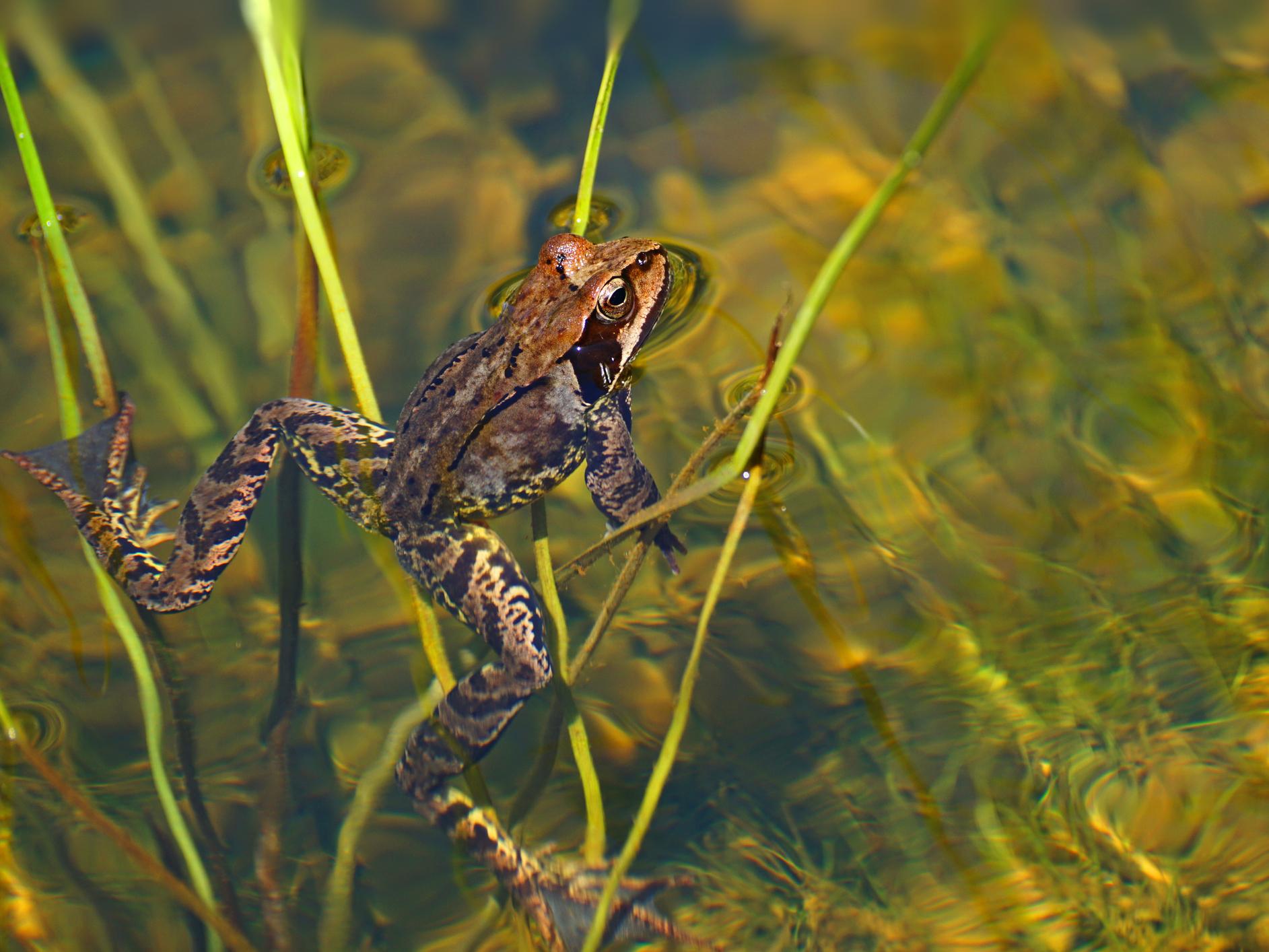Frogs and toads vanishing from British gardens due to lack of ponds, says RSPB
'Unfortunately, the sights and sounds of wildlife that were once common to us are sadly becoming more mysterious'

Your support helps us to tell the story
From reproductive rights to climate change to Big Tech, The Independent is on the ground when the story is developing. Whether it's investigating the financials of Elon Musk's pro-Trump PAC or producing our latest documentary, 'The A Word', which shines a light on the American women fighting for reproductive rights, we know how important it is to parse out the facts from the messaging.
At such a critical moment in US history, we need reporters on the ground. Your donation allows us to keep sending journalists to speak to both sides of the story.
The Independent is trusted by Americans across the entire political spectrum. And unlike many other quality news outlets, we choose not to lock Americans out of our reporting and analysis with paywalls. We believe quality journalism should be available to everyone, paid for by those who can afford it.
Your support makes all the difference.Frogs and toads are disappearing from gardens across the UK as ponds become less popular among the British public.
Data collected in the RSPB’s annual Big Garden Birdwatch revealed that while frogs are still the most commonly seen garden visitors besides birds, sightings have declined in the past four years.
The survey, which covered tens of thousands of households, showed frogs were spotted in over three quarters of gardens in the past year.
However, while they were seen at least monthly in 39 per cent of outside spaces in the last year, the figure is down from 46 per cent in 2014, the last time they were included in the survey.
It is a similar story for toads, which were seen in 20 per cent of gardens and outdoor spaces, down from 28 per cent four years ago.
The disappearance of garden ponds and pools, important habitat for amphibians, is putting pressure on frogs and toads, conservationists say.
The RSPB is urging people to get outside and create simple ponds and pools in their outdoor spaces this summer.
“Most people remember seeing tadpoles at the local pond or a toad emerging from under a rock while they were growing up - these first experiences with nature stay with us forever,” said Dr Daniel Hayhow, an RSPB conservation scientist.
"Unfortunately, the sights and sounds of wildlife that were once common to us are sadly becoming more mysterious.
"There are lots of simple things we can all do in our outdoor spaces to make them perfect for wildlife.”
As frogs and toads are amphibians, they need a source of water where they live in order to survive and reproduce.
"Creating a small pond in your garden, or a pool using a washing-up bowl, is so simple to do and could make all the difference,” said Dr Hayhow.
Dr Karen Haysom, from wildlife charity Amphibian and Reptile Conservation, said: "Frogs and toads face many pressures including the loss of habitat like ponds.
"Helping these fascinating creatures by making wildlife habitat in your garden, or taking part in species recording and monitoring schemes so we understand how nature is faring, is fun and can make a difference."
Other results about wildlife reported as part of the Big Garden Birdwatch survey show an increase in sightings of hedgehogs compared with last year – seen in almost two-thirds of gardens at least once in the year.
Foxes also continue to be commonly seen in gardens, spotted in almost three-quarters of outdoor spaces by people taking part in the survey.
These findings provide some reassurance following a major review conducted by the Mammal Society that found many of Britain’s mammal species are facing extinction – with hedgehogs experiencing a population decline of two-thirds in the past two decades.
Naturalist Chris Packham recently warned of an “ecological apocalypse” facing the UK due to the collapse in populations of insects and birds – trends that have been attributed in part to pesticide use on farms.
Additional reporting by PA.
Join our commenting forum
Join thought-provoking conversations, follow other Independent readers and see their replies
Comments